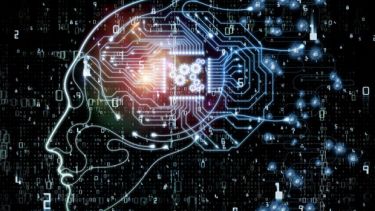
Universities must embrace the benefits and the challenges of new technology
“We no longer know who students will be once they leave,” says Jennifer Cable, a consultant in the talent management team at PA Consulting, reflecting on the radically different jobs alumni could be doing in decades to come and how this will impact what higher education has to offer. “Before, the dominant trend was to finish school and go to university staying in the same professional area for life. In the future the pace of technological change will mean the blend of students and approaches to studying will need to be quite different for individuals to continuously learn to keep employable.”
It’s easy to be absorbed by the doom-mongering about technologies such as artificial intelligence. On the one hand, universities must equip students with the necessary skills to navigate a world where many aspects of work will be automated, while on the other accept that automation will bring benefits and challenges to the HE sector.
Already, many institutions are automating aspects of their operations, for example admissions decisions making, and examining new, more flexible ways of working. “Some are using flexible pools of administrative staff they can deploy as and when, while others are using teams of staff in more agile ways, for example across multiple departments rather than just one,” explains Ian Matthias, managing consultant at PA Consulting.
Before they can begin to prepare for future scenarios, HE institutions are dealing with a range of challenges, from how Brexit will impact student and staff numbers to how rapidly evolving technology affects how they deliver learning. “AI and wearables mean we can deliver and receive educational content in different ways,” says Cable. Video delivery is already established and it’s not inconceivable that some aspects of a course programme could be delivered by a chatbot in the future. New technology will also affect the content of courses – if robots are able to make medical diagnoses in years to come, what does this mean for a medical degree? In HE, automation could improve job satisfaction in many roles where tasks are repetitive, enabling staff to move into more engaging work, she adds.
Universities also face radical changes to the student demographic. About 40 per cent of the population will be older than 65 by 2030 and multi-stage careers (where we pursue multiple interests with multiple employers during our lifetime, or even work for several employers at once) will replace the traditional three-stage notion of education-career-retirement.
Such changes alter the relationship between university and student to something more sustained and long-term, argues Matthias. “The relationship will change from one where they stay in online contact after a three-year degree – often to ask for financial support – to one where they equip people with an initial skill set and then further iterate those skills as time goes on. There will be a shift to a genuine lifelong relationship,” he says. The constant re-skilling required to keep up with the demands of the gig economy should offer a valuable opportunity for universities to support people to keep retraining and re-inventing themselves.
Students will begin to challenge institutions about the ways that they can deliver learning, too. “They may start to question why they can’t do their degree from their home country or remotely. Or whether they can do part of it in one institution and another somewhere else,” says Cable. “We could see more partnerships between institutions to provide a degree experience unique to each individual student. It changes the whole competitive field.” And to prepare them for the rapidly changing skills demands of a potentially volatile employment market, universities increasingly look beyond their core curricula to build students’ “soft skills”, such as problem solving and resilience.
One institution runs certain courses as “sprints”, mirroring the agile development approach used by many tech start-ups. “They’re replicating the future of work but offering the same educational outcomes, turning the university model upside down,” Matthias explains. But unless the importance of this adaptability is grasped at the most senior levels in HE, institutions could be left behind, he concludes. “Universities are facing unprecedented near-term challenges and, understandably, we’re not seeing the workplace of the future on the agenda as much as we’d like at executive level,” he says. “In fact, it could be a real opportunity for universities to lead the way and really look at how, in this technology driven world, they will create positive futures for their own staff and students alike.”
More education insights from PA Consulting.
























